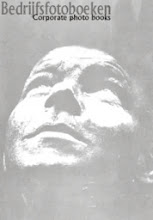
 Ica Vilander - A Re-discovery
Ica Vilander - A Re-discoveryAt the end of the 1960’s, everyone who was interested in photography knew her - ICA VILANDER. However, today the individual photographer, always happy to try out new things, fell into oblivion. In reference books of German Photography from 1945 onwards you look her up unsuccessfully. Without good reason! It was Ica Vilander who portrayed the famous artists of her time - Hildegard Knef, Helene Weigel, Gregory Corso, Maurice Béjart, Sidney Poitier. However, she attracted a lot of attention internationally with her nude portraits.
ICA VILANDER, born in 1921 in Brux, Czechoslovakia, training as photographer; since 1944 she lived in Berlin, where she studied graphics and experimental photography at the university of fine arts with Heinz Hajek-Halke; since 1959 first, also international, publications. In twen, there are journalistically inspired studies about the cabaret artist Wolfgang Neuss (8/1962) and about Ica Vilander the photo essay "My Grandma Photographs Nude" (4/1967). The occasion of the essay: Vilander, at that time 40 years old, lived closely together with her son's hippie family and, therefore, with her lifestyle she was the model of a fun-loving and independent woman for a whole generation of women.

She inspired Werner Klett to the movie "Die Augen der Ica Vilander" (The Eyes of Ica Vilander) and participated in the film "Übungen mit Darsteller" (Training With Actors) by Werner Schröter. Some of her photographic works are to be seen as overlays in the movie "Das Brot der frühen Jahre" (The Bread of the Early Years) adapted from Heinrich Böll. For the publishing houses Rowohlt and Heyne, she designed books. From 1980, she has almost completely retired from public life.
Her originals are rare, as a lot was destroyed and does now only exist as a copy in twen or in her books "akt apart", "La femme vue par une femme" (1967), "akt abstrakt" (1968), "akt adonis" (1969), and "vive le sexe" (1970).


















Geen opmerkingen:
Een reactie posten